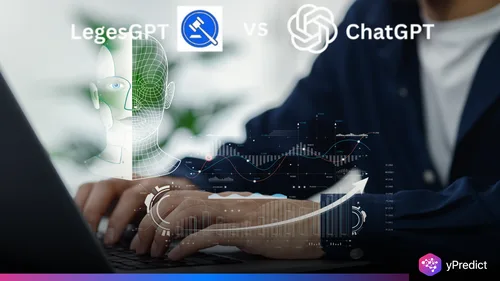
The legal profession has always required extensive reading, analysis, and careful study. Lawyers often work through the night reading old judgments, statutes, and case studies to construct their arguments. Historically, legal research has been time-consuming and costly. In particular, young lawyers without the resources of a large firm often find legal research challenging. Now, a new AI legal research tool is making headlines by doing the work of hours in just seconds. This breakthrough tool answers legal questions instantly and backs them up with cited sources. For lawyers and law students, it promises a future where research is no longer an exhausting burden but a streamlined process.
The rise of AI legal research does not just promise speed, it changes the way lawyers think about preparation. Instead of manual searching, professionals can now focus on strategy, client needs, and courtroom delivery. The disruption this technology brings could make justice more accessible and reduce costs across the legal system.
AI Legal Research: A Game-Changer for Lawyers
Attorneys have relied upon extensive legal libraries and costly databases for many years. Now with AI legal research, they can simply write a question and receive a comprehensive response with citations in seconds. This saves countless hours and helps reduce the likelihood of missing important precedent.
The tool combines natural language processing with verified databases, ensuring that answers come with references lawyers can trust. Unlike generic search engines, this AI tool understands the context of legal questions. That makes it useful for everything from case prep to academic research.
Why Speed and Accuracy Matter in the Legal World
In law, time is money. When lawyers take days to research, it’s the clients that pay off the time. The legal AI tools save clients this money by providing immediate answers, with accurate references. These tools also give smaller firms and solo practitioners a leg up against larger firms with research teams.
Accuracy is equally as important, and with references provided with an AI tool, lawyers will have good materials to present to the court. This instills client trust in the lawyer, as well as supports the client’s arguments.
Expanding the Role of AI in Law
The legal profession has been lethargic in adopting technology when compared to other professions (though lawyers are beginning to see its value in the form of AI in law). Before AI, lawyers would often receive automated responses that weren’t always respectful of research; at least they weren’t finding their way back to an actual legal source. AI can now assist lawyers with contract review, compliance reviews, and even predictive analysis of case outcomes.
The key difference about this tool is ebnefits over speed and prestige of legal credibility. AI will produce legal answers, like the previous generation of ‘legal’ tech tools, but the new generation of legal AI will be so grounded in legal sources that it may even mark a cultural changing point for AI from being an immersive assistant to being a daily, integral part of lawyers’ work.
Impact on Legal Education and Young Lawyers
Whether you are a law student or an early-career attorney, AI-powered legal research is an important benefit. Rather than sifting through casebooks and combing through the law in writing, students and young lawyers will be able to obtain an understanding of the precedents and cases involved and focus more on learning strategy. The technology can also assist in bridging the gap between theory and practice and help young lawyers gain more comfort in their work.
Legal education will be shaping into something new as well. Universities will bring AI further into their curriculums, teaching not just the law, but also teaching students to work with the technology. The future generations will be prepared for practice where humans and technology work together, rather than humans against technology.
Challenges and Ethical Questions Ahead
Even though AI has tremendous potential, it raises important questions. Can lawyers trust AI research? Are the sources up to date? Regulation is going to be vital in holding AI legal tools to a high standard of accuracy and equity.
There are also concerns about lawyers being overly reliant. Lawyers should continue to exercise judgment and reasoning, and not rely solely on AI’s suggestions. The AI tool should be to the lawyer what the calculator is to the mathematician – capable of assisting with the exercise of reasoning without replacing it.
Final Thoughts
The increase in the use of AI legal research is one of the biggest transformations in legal practice in modern times. It potentially provides speed, accuracy, and accessibility that can change the practice of law. While there are still difficulties, the benefits should not be taken lightly.
As usage becomes more widespread, the legal community will have to balance technology with expertise. Adopters of this change will not just save time but improve the outcome to clients. The courtroom of tomorrow will be built not only by lawyers but by the tools of AI.






